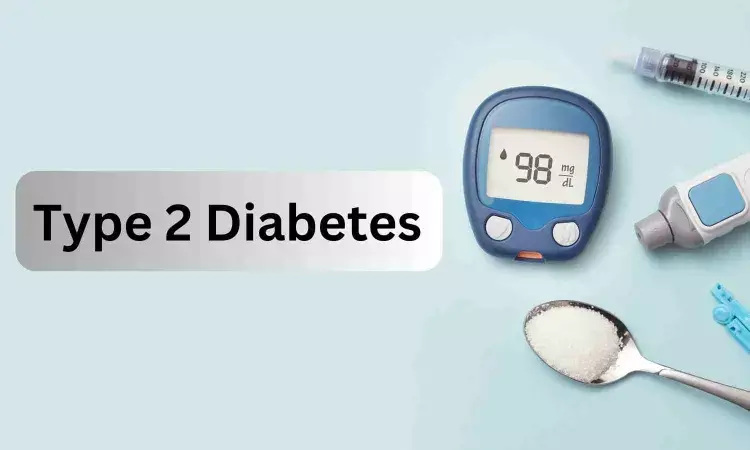- Home
- Medical news & Guidelines
- Anesthesiology
- Cardiology and CTVS
- Critical Care
- Dentistry
- Dermatology
- Diabetes and Endocrinology
- ENT
- Gastroenterology
- Medicine
- Nephrology
- Neurology
- Obstretics-Gynaecology
- Oncology
- Ophthalmology
- Orthopaedics
- Pediatrics-Neonatology
- Psychiatry
- Pulmonology
- Radiology
- Surgery
- Urology
- Laboratory Medicine
- Diet
- Nursing
- Paramedical
- Physiotherapy
- Health news
- Fact Check
- Bone Health Fact Check
- Brain Health Fact Check
- Cancer Related Fact Check
- Child Care Fact Check
- Dental and oral health fact check
- Diabetes and metabolic health fact check
- Diet and Nutrition Fact Check
- Eye and ENT Care Fact Check
- Fitness fact check
- Gut health fact check
- Heart health fact check
- Kidney health fact check
- Medical education fact check
- Men's health fact check
- Respiratory fact check
- Skin and hair care fact check
- Vaccine and Immunization fact check
- Women's health fact check
- AYUSH
- State News
- Andaman and Nicobar Islands
- Andhra Pradesh
- Arunachal Pradesh
- Assam
- Bihar
- Chandigarh
- Chattisgarh
- Dadra and Nagar Haveli
- Daman and Diu
- Delhi
- Goa
- Gujarat
- Haryana
- Himachal Pradesh
- Jammu & Kashmir
- Jharkhand
- Karnataka
- Kerala
- Ladakh
- Lakshadweep
- Madhya Pradesh
- Maharashtra
- Manipur
- Meghalaya
- Mizoram
- Nagaland
- Odisha
- Puducherry
- Punjab
- Rajasthan
- Sikkim
- Tamil Nadu
- Telangana
- Tripura
- Uttar Pradesh
- Uttrakhand
- West Bengal
- Medical Education
- Industry
One in Four Patients with Difficult-to-Control Type 2 Diabetes Experience High Levels of Cortisol: ADA

Today, findings from the CATALYST study reveal that hypercortisolism may be a significant factor for why type 2 diabetes (T2D) remains difficult to control for many patients. This study found that 24% of individuals with difficult-to-control type 2 diabetes have hypercortisolism, a condition characterized by high cortisol levels. The results were presented as a late-breaking symposium today at the 84th Scientific Sessions of the American Diabetes Association® (ADA) in Orlando, FL.
Currently, 38.9 to 76.9% of patients with type 2 diabetes have uncontrolled diabetes. Additional research is needed to understand how hypercortisolism may be an underlying contributing cause for difficult-to-control type 2 diabetes. Symptoms of hypercortisolism can include weight gain, high blood pressure, muscle weakness, and mood changes, which can further complicate diabetes management.
The CATALYST study, the largest prospective trial of its kind, screened over 1,000 patients with hemoglobin A1c levels between 7.5% and 11.5% despite multiple diabetes therapies. Researchers used an overnight 1-mg dexamethasone suppression test (DST) to detect hypercortisolism, indicated by a post-DST morning cortisol level above 1.8 μg/dL and a dexamethasone level of 140 ng/dL or higher.
Findings showed presence of hypercortisolism in 24% of the screened patients. Notably, among those taking three or more hypertension medications, the prevalence of hypercortisolism was approximately one in three. Additionally, CT scans revealed adrenal abnormalities in about one-third of these patients, with a quarter having an adrenal tumor, suggesting that surgical intervention could potentially resolve their hypercortisolism and improve diabetes control.
“These results are significant as they highlight a previously underrecognized factor contributing to the barriers when it comes to managing type 2 diabetes,” said John Buse, MD, PhD, from the University of North Carolina School of Medicine Diabetes Center and Translational and Clinical Sciences Institute and lead author of the study. “By identifying hypercortisolism in these patients, we can target treatments more effectively and potentially improve their outcomes.”
The first part of the CATALYST study underscores the importance of screening for hypercortisolism in patients with difficult-to-control type 2 diabetes The ongoing second part of the study aims to evaluate whether treating hypercortisolism medically can enhance diabetes management and alleviate related health issues.
Dr Kamal Kant Kohli-MBBS, DTCD- a chest specialist with more than 30 years of practice and a flair for writing clinical articles, Dr Kamal Kant Kohli joined Medical Dialogues as a Chief Editor of Medical News. Besides writing articles, as an editor, he proofreads and verifies all the medical content published on Medical Dialogues including those coming from journals, studies,medical conferences,guidelines etc. Email: drkohli@medicaldialogues.in. Contact no. 011-43720751


